Why do you think it's crucial for professionals to draw upon their personal hardships to establish meaningful connections with clients?
E219: Diversity in Sales with Rakhi Voria – Part 4 of 4
Rakhi Voria, the current Director of IBM Global Digital Sales Development, has gone from selling lemonade as a kid to global sales leader and champion for diversity.
In this series we talk about diversity in the world of sales, to building out global digital sales teams and processes.
Some gems:
“There’s actually a lot of statistics out there that say that women are better at sales than men.”
“I think the traditional notions of what makes a person successful has really changed.”
“We have to get really, really crystal clear about what we’re selling, who we’re selling to, what their needs are, where they are in the industry.”
Download The Power of Authentic Persuasion ebook
Enroll in the Authentic Persuasion Online Course
Connect with Jason on Linkedin
Connect with Rakhi on LinkedIn
Rakhi’s Bio
As the Director of IBM Global Digital Sales Development, Rakhi Voria manages a team that is responsible for the strategy, implementation, and revenue of the Digital Sales Development (DSD) function globally. Within the DSD sales force, there are ~350 Digital Development Representatives and Business Development Representatives responsible for driving client engagement, deal progression, and closure of select deals. Rakhi previously worked at Microsoft and most recently served as the Chief of Staff to the Corporate Vice President of WW Inside Sales, where she played a key role in building a new digital sales force for Microsoft, growing the team to 2,000 digital sellers globally and the business to over $5B in under 3 years.
Rakhi has a strong passion for advancing women in sales and millennials in business and regularly shares her thoughts on these topics by speaking at conferences and writing publications in Forbes as a member of the Forbes Business Development Council. She currently serves as Executive Co-Chair of Women@IBM NYC, which is focused on attracting, retaining, and advancing women. At Microsoft, she was Co-Chair of the Women@Microsoft Board, a network of over 20,000 women across 15 regional chapters globally.
Rakhi has been featured in Geekwire, The Seattle Times, Vizaca, Career Contessa, Be Leaderly, and other publications and was named a Top Sales Woman to Watch in 2019. She earned her M.Sc. from the University of Oxford and her B.A. from Colorado College. Rakhi is based in New York City.
Rakhi’s Links:
Linkedin: https://www.linkedin.com/in/rakhivoria/
Twitter: https://twitter.com/rakhivoria
Forbes articles: https://www.forbes.com/sites/forbesbusinessdevelopmentcouncil/people/rakhivoria/#48e2218175a1
Women in sales documentary feature:
https://www.youtube.com/watch?v=hHAnPbQJSHQ
-
Show Transcript
Jason: Hello and welcome to the final part of my conversation with Rakhi Voria. If you haven’t checked out episodes one, two and three of this mini series of our conversation. This is one continuous conversation that we had talking about sales, digital diversity, kind of what it takes to be successful in sales. All of it. This final part, we’re going to wrap it up here and here we go. Part four.
Rakhi: Some people literally to this day even say we’d love for people with competitive sports backgrounds as an example. And right off the bat that probably might actually really make some women not be interested in a sales organization or if they see the word Hunter on the job description. It’s just a very aggressive word. So I think it’s really important to be super intentional, as simple as the job descriptions.
Jason: And since you brought up recruiting, it’s interesting because I had made some notes before we were going to talk and we’re going to talk about diversity, which we have, and there’s the common diversity kind of approaches for what you want to have within your organization. And we talked about having a diverse background or diverse group of people with sex men and women in the organization at all levels. And then there’s obviously ethnicity, there’s race, nationality, and kind of bringing all these perspectives. Okay. I think one of the most important things which you’ve just touched on is experience as well and it’s having a very diverse workforce and group all parts of the org chart which are diverse with experiences, right? So you come from Microsoft and now you’re at IBM. This person that you just hired was that Starbucks. This other one was working at the mall.
Jason: This other person is maybe competitive sports or in the military, cause I’ve worked with lots of people in the military as well and I think that’s valuable. I think it could be dangerous for organizations when they’re focused on one type of person and that’s very singular and they want this certain background or experience and they’re missing out. You said this very early on in our conversation is the world is changing, the world is more diverse, and so you may like your certain, you know, let’s say an organization likes its certain archetype of what they think a salesperson should be, but then your customers are changing and the people are calling are changing, right? It’s not just, and I’m going to say it, it’s not just white males calling other white males that organizations to sell them stuff, right? Maybe white males calling like yourself, Indian American women to talk about this solution. It’s like, okay, so being diverse and being okay with that. I mean, I think that’d be experiences. I think that’s huge.
Rakhi: Yeah, and I mean diversity spans across so many things. It’s obviously gender, it’s race, but I always encourage people to look at age as well. I mean when we look at some of the customers that we’re selling to, it might very well be a 25 year old CEO and so I think it’s just so important to have sellers who really reflect your customer base and can engage with them in a way that is a little bit more natural than maybe somebody who has been in the industry for a long time. I think it’s really valuable to have both perspectives and I think as long as you have the right investments and enablement in training, you can really teach anyone to do anything as long as they have some of those fundamental skills that we talked about around being able to communicate and listen and all of those important things. The rest of it, you know, I mean I would just sort of throw out whatever traditional notions you have about what to do good seller entails and really be open minded. It might mean some short term trade-offs. You might not get somebody who is selling on day one, but maybe they will be selling on day 31 after a month of the right training and enablement and they might be a better long term fit and solution for your company.
Jason: And depending on what you’re selling, the biggest kind of attribute I used to look for when I was hiring people, especially when dealing directly to consumers, but even business to business is I always looked for potential candidates to come on the team who had some life experiences and some hardships. So it wasn’t that everything was difficult in their life or something catastrophic or terrible had happened. But what I found was to be effective in sales, it’s listening, it’s empathy, you know, it’s understanding the other person, might be going through something you’re selling even if it’s business, a business, right? Talking to that, let’s say VP of marketing about your software solution that’s going to help. Like you still have to understand they’re a person, they have a job, they have a life, they have problems, but you know, they’ve got all these things going on. And I’ve had some really amazing salespeople work for me that were young in age, early twenties but had been through so much stuff in their life that they brought that experience, that empathy, and they just, it was amazing. Right? And I think that’s something that’s missed and hard to kind of recruit for or put on a job description, his life experiences. But I think that’s valuable as well.
Rakhi: I completely agree. I mean, I think people who have persevered in the face of some level of adversity really end up having a good career in sales. I mean, I personally, I think that’s what helped me in some ways. I grew up with a single mom. My dad left when I was very young and she was just amazing. And I saw that women can do everything. And I had two older sisters who helped raise me. And I think that that taught me a lot of things. I grew up at a young age. It taught me to make the best out of what I have, leveraging whatever resources, connections, experiences that I had. And it also taught me to be willing to ask for help because you can’t do it on your own. And I saw that growing up. And I think honestly, part of my story was why the recruiter at Microsoft eventually sort of encouraged me to look at sales because she did even mention you have a strong track record of success. You’ve persevered across a lot of different hardships in situations that you might have been faced with at a young age. And so you have a level of grit that is required to be successful in sales.
Jason: And I think that’s something that a lot of people overlook, whether it’s, well, they get into sales, especially, you know, this conversation about women in sales and their effectiveness and what holds them back. And a lot of them, I think that they’re, cause they’re not a killer, they shouldn’t be in it. But having grit going through things, whether it’s sales or any other profession or career, don’t discount what you’ve been through. I know for myself, I used to beat myself up a lot because my path was very windy. I didn’t go to school for something that I then graduated college and then went into and I had that career for 20 years. Right. Like using that letter, like a kind of, you look at my path, it’s very windy, it’s all over the place. But then what that taught me was a lot of life experiences, a lot of various perspectives on the world. I’ve been handed a lot of grit for sure. And then that’s made me successful now and I think a lot of people feel that same way. It’s like, well, I can’t like go into our recruiting thing. I just work in retail. I can’t do this. But can you bring that experience? Like what have you been through as a person and then apply that to anything in your life and be successful.
Rakhi: Yeah, I mean I think you need grit for every profession, but you really need it when, and when you have a customer who’s maybe telling you no five times in a row or that you’re offering is too expensive or not as good as the competition or whatever it might be.
Jason: Right. I mean that’s the life of sales, which is why you know, a lot of people don’t want to do it or can’t stay in it. And I think going back to something you said a little bit ago about looking at it long term, it’s first determining self-awareness is sales for you. Like once you get into it or you’re looking in the sales is sales for you, is it something you want to do? Self-awareness, like what are your strengths? What can you bring to those conversations? Like you were talking about what it takes to be successful in digital sales and sales in general. I mean a lot of that is self-awareness and bringing that to those conversations. Once you make that decision. What I always tell people, I was like, once you realize sales is for you, just lock in a goal and a timeline of how long you’re going to give it to like figure it out and then be successful and really give it its due because you’re going to get hit in the face a lot and you’re going to fall down a lot. And not just when you’re new, but just constantly. And so you have to have something pushing you and some reason you’re doing it and why you’re going to stay in it long term, right? Whether it’s a year or two years, but just don’t stop too soon.
Rakhi: For sure. Because I think all of those things that make sales really hard actually make it a great profession and a great training ground for you to build a variety of skills. So, I mean we’ve talked a lot about those already. The confidence, grit, perseverance, I mean, yeah. A better way to develop all of those things and by having to build trust with a stranger. But I also tell people all the time that you’re gonna really learn a lot of tangible hard skills. Like how to position, influence, negotiate effectively. You have to be knowledgeable, have answers. And the reality is we’re always, always selling whether, we like to say it out loud or not. I mean, when we’re interviewing for a job we are selling. When we’re convincing someone to go on a date with us, we’re selling.
Jason: Or convincing the person that we’re with to go to a certain movie versus you know, not going to a movie. I mean that’s, you know, I end every episode and I will when we finish this, I mean everything in like the sales. No matter what. Whether you like it or not.
Rakhi: Exactly. So learning how to sell, learning how to sell well, I mean it’s a great thing for everybody to have in their back pocket. And as you said, it’s important to think about how long you want to do anything for. For me, actually I took my sales role and went in a bit of a different direction. It’s actually been a long time since I’ve been in a direct sales role frankly. They started in a direct sales role. I was in front of customers. I loved that. But then I quickly pivoted and went to a more corporate role. I was Microsoft financing America’s business development leader. And so basically my job was to make it so that our financing sellers had what they needed to be successful, whether it was putting an offer in motion or a sales play or making sure they had the right training.
Rakhi: So it was my way to sort of get a little bit away from direct sales, but still deeply engage with sellers and supporting them. Having been a seller myself. And then as you said, I went and helped Microsoft build their digital sales team as the chief of staff to the corporate vice president over there. We hired 2000 people and under three years and now I’m at IBM helping to manage a large sales organization but also evolve it. And so I really encourage people to realize that there isn’t a linear path in sales. You don’t have to start as a seller, then go into management, then be a VP of sales. It is such a transferable and marketable skill and I think you can do really anything with it.
Jason: Final question. Do you ever miss selling and or have you thought recently since IBM putting the headset back on and uh, doing some direct sales?
Rakhi: I do miss it and I realized that actually when I was on my recent Asia tour, so I had a chance to go to Seoul, Korea recently and meet with some of our customers who are exploring different opportunities and it just reminded me how much I missed it actually. So I do get to do a little bit of that here and there. I mean it’s not as frequent as I would probably like to, but anytime I go to one of my sales centers and spend time with the teams, I try to meet with a business partner as well as a customer. So I mean I definitely do see myself maybe at some point going back into that world a little bit more directly. I’ve never had a, I guess, true enterprise sales experience. A lot of it has typically been on the corporate side or commercial space or small, medium size. And so I think maybe it’d be fun to be like a managing director for a large customer or something at some point. Who knows?
Jason: And like you said, you’d never know your path in life and there’s no linear direct exact path you’re going to go. So who knows.
Rakhi: Exactly. Good to be able to find it.
Jason: Thanks for being on the show so that people can find you, I’m going to put the links in the show notes that you’ve given me, but for people listening right now where some good places for them to find you, follow you, see the kind of initiatives you’re working on.
Rakhi: Well, I would say LinkedIn and Twitter are the best ways to connect with me. Also, you can follow me on my Forbes business development council page where you can see the articles I’ve written on some of the topics that we discussed today. So really forward to engaging with this audience and happy to chat anytime on all things sales.
Jason: Well Rakhi, thank you for being on the show. It has been amazing and I appreciate just interacting with people like yourself that are almost on an opposite end of the spectrum of sales. Yet sales is still sales. So I appreciate everything that, uh, you’re doing to help with that in the world of sales and making it a better place.
Rakhi: Thank you. Same to you.
Jason: And for everyone listening, make sure to go to cutterconsultinggroup.com/podcast where you can listen to these episodes, see the transcripts, and see all of her show notes and links. And as always, keep in mind that everything in life is sales and people remember the experience you give them.
Become a Certified Authentic Persuader
Get the ebooks to help you close more deals
Visit
Selling Effectiveness for more tips and get help
Follow Jason on LinkedIn
Or go to Jason’s HUB – www.JasonCutter.com
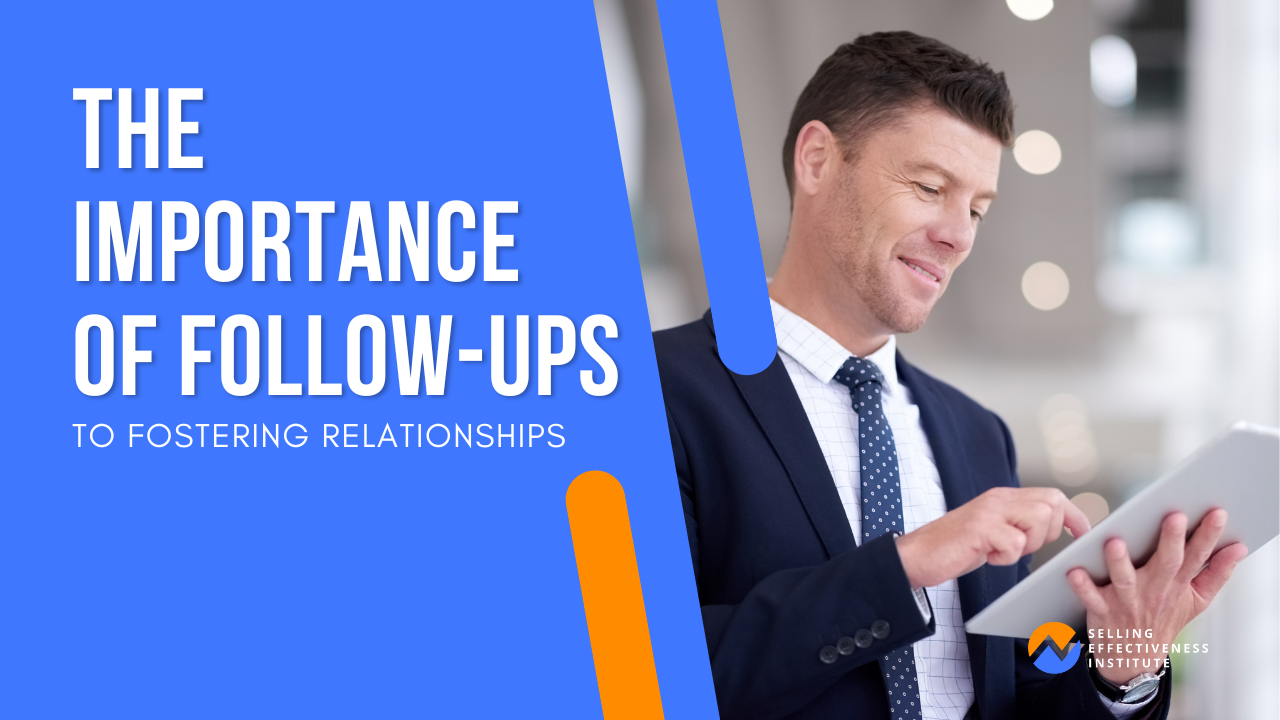
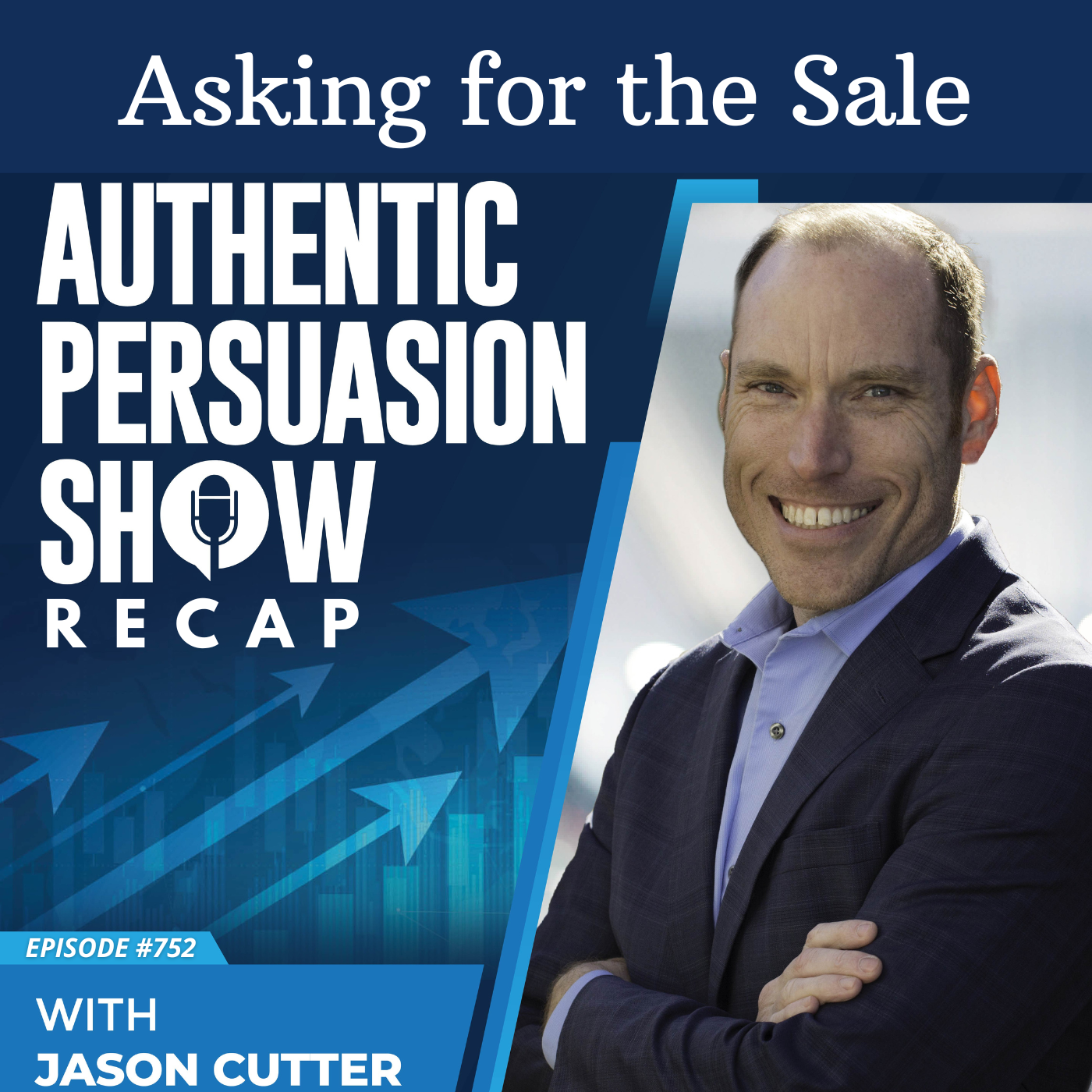
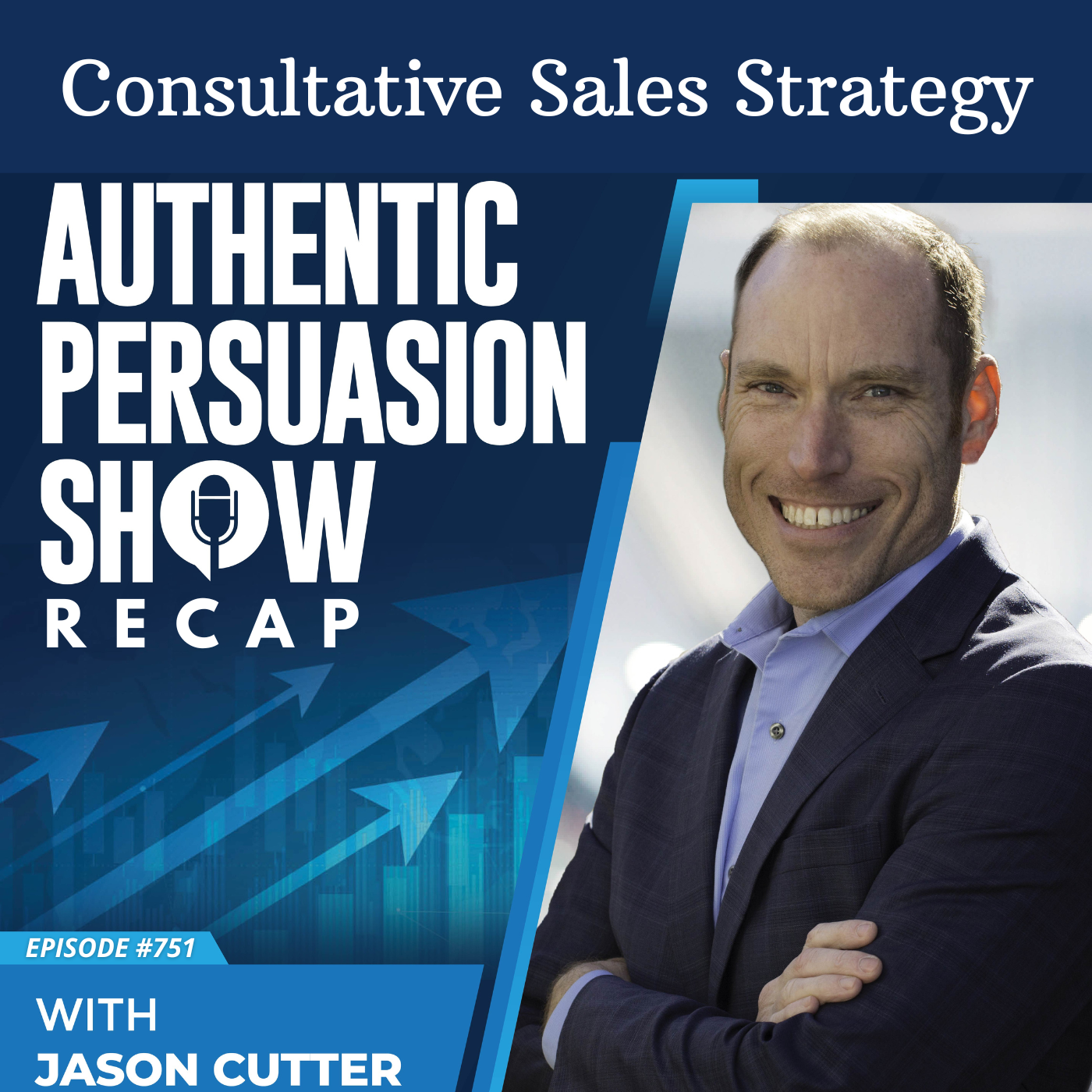
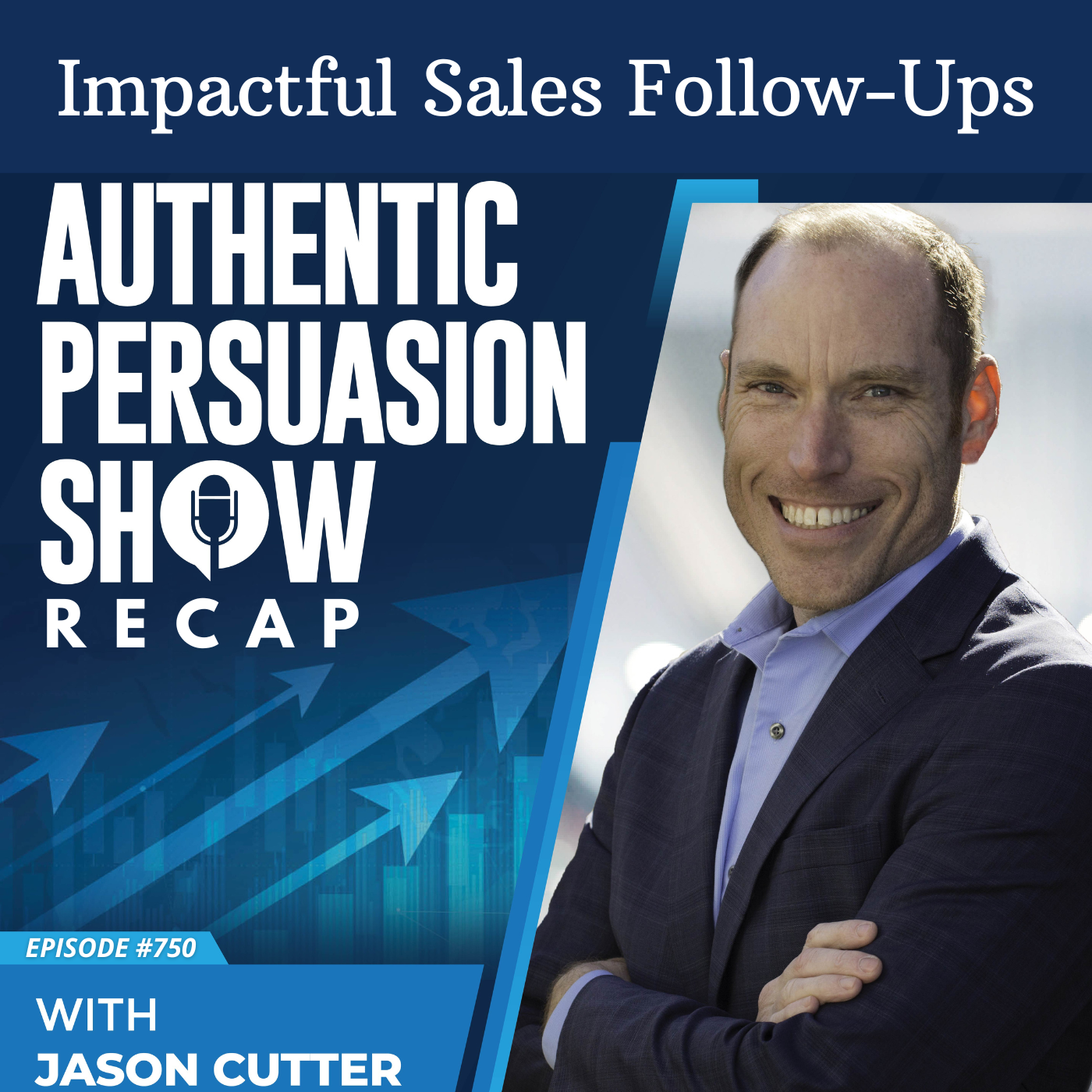
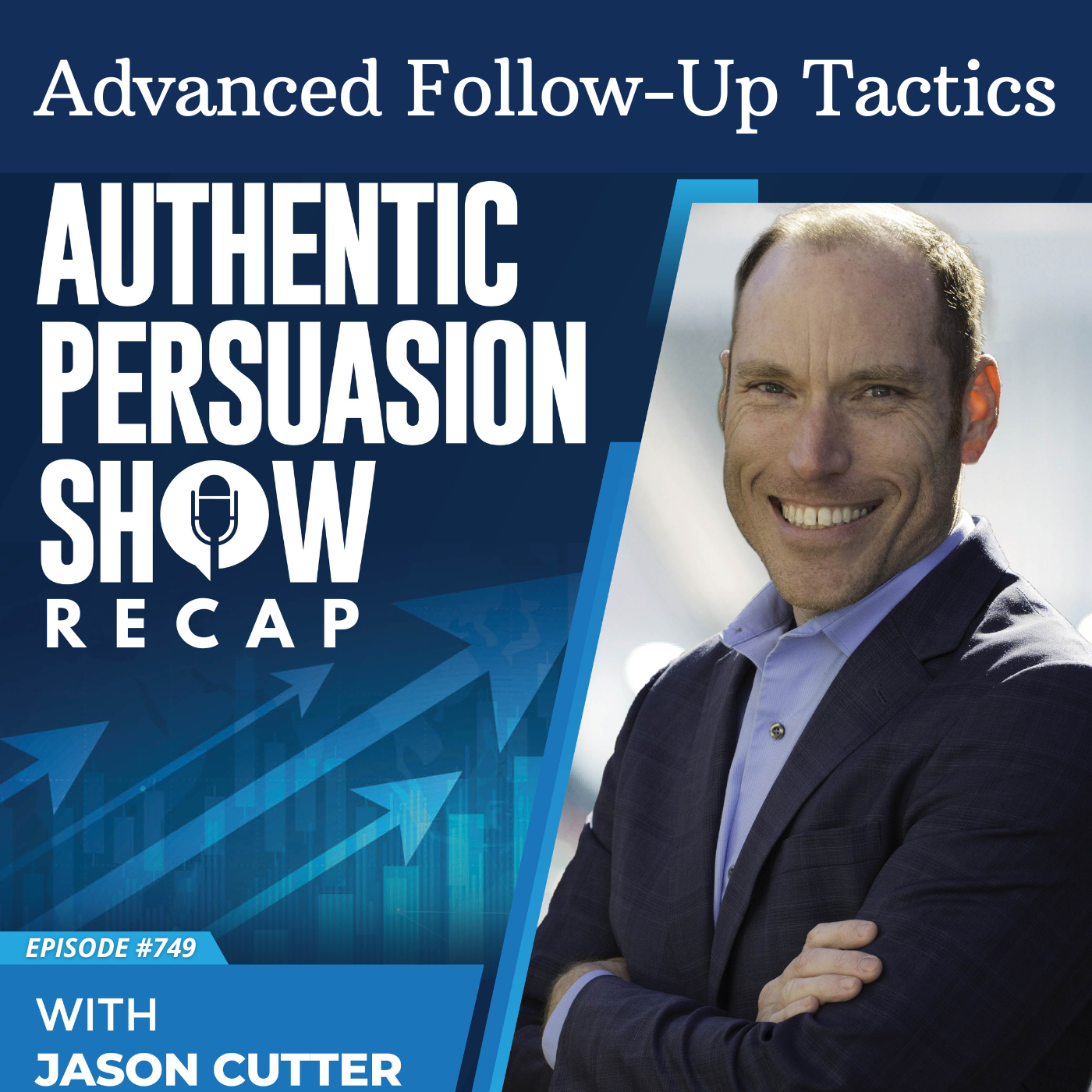
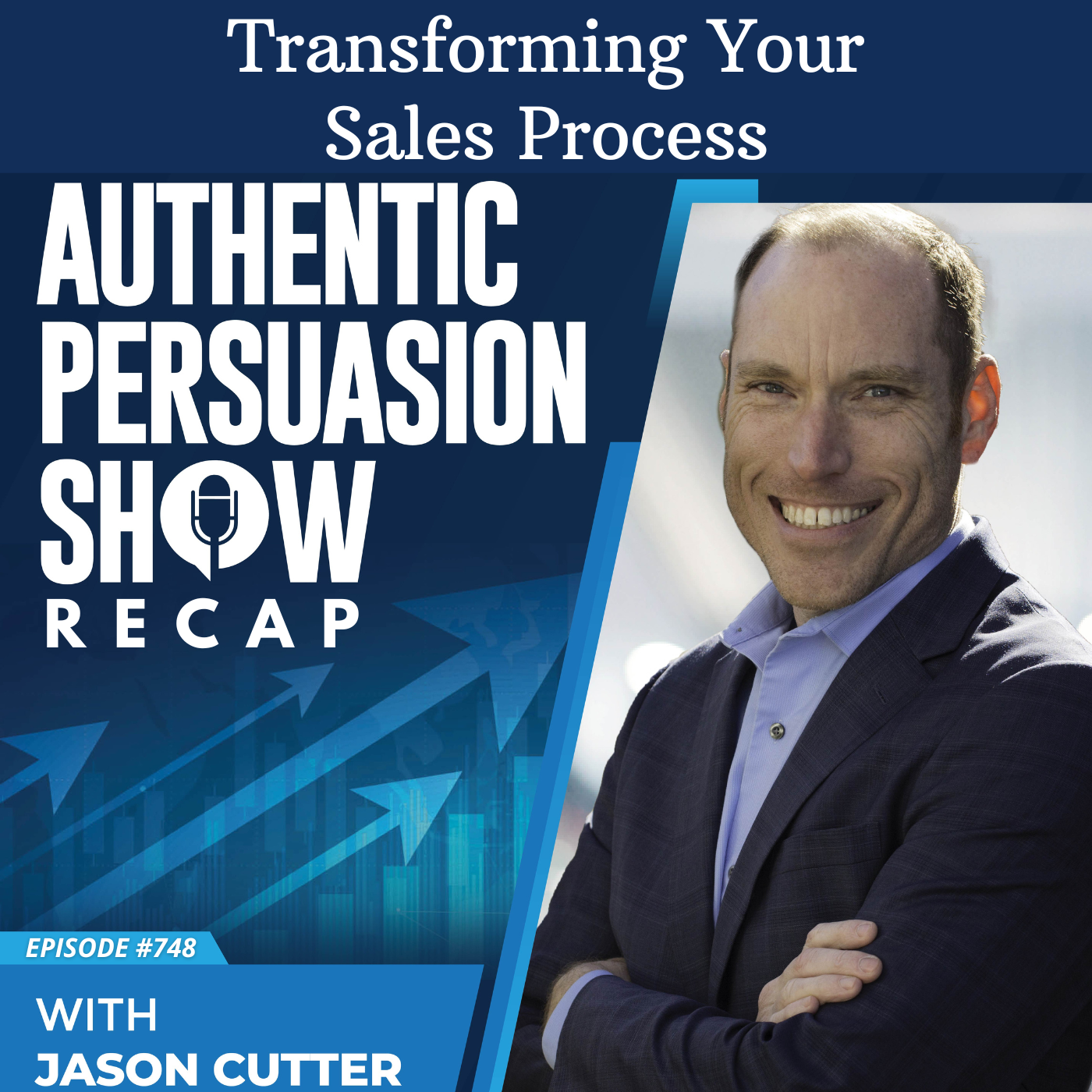
Phone: (239) 206-1919 | Email: info@sellingeffectiveness.com
Copyright © 2023 Selling Effectiveness Institute. All rights reserved.







